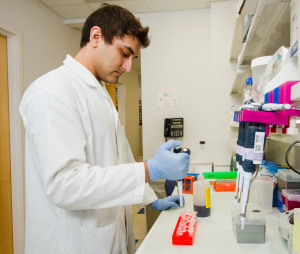The Inner Defense Intitiative
It was the afternoon of February 12, 2010, at the University of Alabama in Huntsville. There was a biology department staff meeting in progress when professor Amy Bishop stood up from the meeting table, pulled out a gun, and began to shoot her colleagues. She shot six people, three fatally, before the gun malfunctioned and she was forced out of the room. I remember the day very clearly. Most of the people at that meeting were friends of mine. I had worked in some capacity in the past with everyone in that room including Amy Bishop.
The lives of each of the survivors of that horrific experience were drastically changed, their life views, their very constitutions, were forever reshaped. This may seem to be a statement of the obvious, as we can all imagine that witnessing such violence and loss of life, particularly of those close to us, would necessarily cause psychological distress that could persist and change how we think and feel. But in truth, the toll that this kind of experience can take on an individual is beyond the imagination, because how it manifests is unpredictable, extremely complex, and very particular to the individual.
One of the survivors of the UAH shooting, biology professor Dr. Joe Ng, made this very observation, that is that each of the survivors responded and coped differently with the trauma of that experience. He recognized and acknowledged that he, like everyone involved, had been undeniably changed by this event, and those changes weren’t simply explainable by psychological factors alone. It made him ask the question “…why are certain people resilient to PTSD while some are very sensitive?” As he looked into the scientific literature he discovered a growing body of research documenting incidences of physical manifestations of disease associated with Post Traumatic Stress. Many of these reports described symptoms that could be associated with immunological factors. To explore this connection, Dr. Ng collaborated with psychologist Dr. Eric Seemann to look for blood-based indicators associated with PTSD. The results of the pilot study provided compelling evidence that there is indeed a connection between the symptoms of Posttraumatic Stress Disorder and our immune system.
As I’m writing this, much of the world has been on a stay-at-home “quarantine” for nearly two months in an attempt to minimize the human cost of the COVID 19 pandemic. There is still a great deal of uncertainty about how we, as a global community, will best get control of this novel virus to minimize its economic, social, and human impacts. It’s agreed by most epidemiological experts that testing is critical to this end. Tracking the incidence of infection is crucial to reducing the near term spread of the infection, and quantifying the prevalence of exposure is necessary to understanding where we stand in terms of the building of our “herd immunity”.

There are essentially two basic types of testing being done, molecular (viral) testing and serological (antibody) testing. Molecular testing establishes the presence of an infection by identifying the virus in the system of the individual. This approach only determines if an individual is currently infected. On the other hand, serological testing determines if an individual has been infected at some point in the past by identifying the presence of ‘antibodies’ to the virus, but can’t confirm a current infection. What the prognostic value is of these antibody tests is a subject of some debate. Generally speaking though, the presence of antibodies in an individual to a particular infectious agent suggests immunity to that specific variant of the agent.
I mention the COVID 19 situation because it is a current example that demonstrates the amazing adaptability of our immune system. It also illustrates the incredible fact that our immune system keeps a record of many, if not most of the pathological or toxic things that find their way into our bodies. In other words, our immune system has a memory and can maintain its memories for many years, possibly even a lifetime.
What does this have to do with post-traumatic stress? When Dr. Ng set out to understand the connection between psychological trauma and the immune system he focused on this very feature, the fact that our immune system keeps a record of its business. But he didn’t have an identifiable pathogen or toxin against which he could look for an immune response. So very cleverly, he decided to look at the molecular records kept by our immune system. Using some of the tools of modern biotechnology, Dr. Ng looked at one particular area of the immunological library where these records are kept, and he characterized the molecular structures, that in effect comprise that part of the memory storage of our immune system. We all maintain thousands of different variations of these molecular structures, and that molecular log file is absolutely unique to each one of us.
The compelling finding from the pilot study I alluded to above, is that there was a very specific molecular structure, amongst many thousands, that was found only in the immunological libraries of individuals who had suffered from the symptoms of PTSD. Furthermore, this structure was found in almost all, greater than 90%, of the subjects with PSTD symptoms. What this observation means specifically, or what practical applications it will enable, remains to be determined, but that is the incremental nature of scientific discovery and medical progress.
In October of last year, Little Orange Fish kicked off the Inner Defense Initiative. We assembled a team of scientists, information technologists, and mental health professionals, with doctors Ng and Seemann leading this effort to build on their previous research. Describing the linkage between psychological trauma and the immune system, our inner defense, is the objective of this initiative. We aim to elucidate the biology of psychological trauma, to provide an understanding of key aspects of the physiology that determines how individuals process and respond to trauma. This research will provide a foundation for a personalized approach to better self-understanding, medical diagnosis, and treatments for PTSD.
‘A strong community is built of healthy individuals and
good health starts with a healthy mind’
–
–
–



